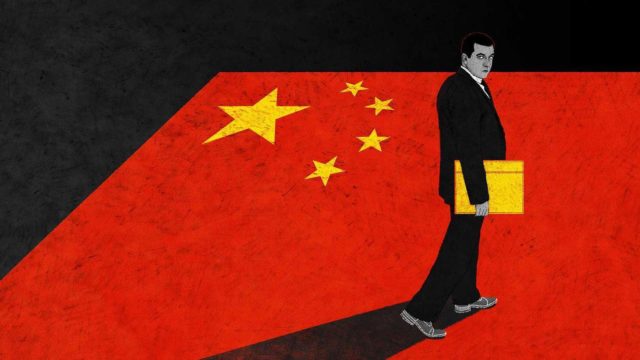Harvard Professor Charles Lieber was formally indicted this month on two counts of making false statements to federal authorities regarding his participation in China’s Thousand Talents program and his involvement with the Wuhan University of Technology.
His arrest in January made headlines, but Lieber proved to be only a harbinger of more than 300 similar cases. All are related to US government research contract conditions and requirements, and all are now in the process of public exposure.
Even more worrisome than the number, all of the cases including Lieber were uncovered by the National Institutes of Health (NIH), although Lieber held contracts from both NIH and the Department of Defense (DOD).
There is no record of similar impropriety uncovered by the DOD itself, or any broader investigation as yet by the Departments of Homeland Security, Energy, State, Education, or other federal government agencies.
But if the US government looked into all contracts across all agencies it is quite likely that the number of cases could easily reach the thousands. The national security ramifications are frightening.
Lieber, the principal investigator of the Lieber Research Group at Harvard, specialized in the highly sensitive area of nanoscience and was funded with more than $15 million in federal grants.
These grants require the disclosure of all sources of research support, potential financial conflicts of interest and all foreign collaboration.
According to the indictment, “Beginning in 2011, Lieber became a ‘Strategic Scientist’ at Wuhan University of Technology (WUT) in China. He later became a contractual participant in China’s Thousand Talents Plan from at least 2012 through 2015.”
In the first count of the indictment, Lieber is alleged to have told the Defense Department’s Criminal Investigative Service that “he was never asked to participate in the Thousand Talents Program” and that he “’wasn’t sure’ how China categorized him.”
The second count concerned his contracts with NIH. “Lieber allegedly caused Harvard to falsely tell NIH that Lieber ‘had no formal association with WUT’ after 2012, that ‘WUT continued to falsely exaggerate’ his involvement with WUT in subsequent years, and that Lieber is not and has never been a participant in China’s Thousand Talents Plan.”
The grounds on which US research scientists can be held to account are related to government work. Scientists who receive federal money must have a written federal contract of some kind, must be clear that their research does not involve a foreign entity, and must not make any false statements related to the federal contract.
But establishing that a foreign entity has research interests in parallel with federal research grants may be difficult. Thousands of grants were formalized with restrictions printed on the contract, but it appears the contract language was never seriously enforced until recently.
No doubt Lieber’s lawyers will try to suggest the government tacitly approved of his dual positions regardless of the law. And, sometimes people lie.
Judicial Watch this week revealed that NIH recently fired dozens of scientists for having secret financial ties to China. NIH had focused on “285 active grants distributed to institutions in 27 states and 59 cities, totaling $164 million.
Investigators singled out “399 ‘scientists of possible concern’ and found that 133 had an ‘undisclosed grant’ from a foreign government and 102 had an ‘undisclosed [Thousand] Talents award.’”
According to Judicial Watch, most of the targets of the NIH probe “were Asian men in their 50s.”
The investigation, called “Foreign Influences on Research Integrity,” is under the direction of a special NIH working group led by Dr Michael S Lauer, deputy director for extramural research. Lauer noted in a “virtual” presentation in June that beyond possible violations of government contracts, the Thousand Talents program remains a problem for the US.
The investigators point out that “China hires senior American researchers, sometimes in secret, who transfer the product of their own research to China.” The presentation slides say that while “such action [by China] is not necessarily illegal, it does transfer IP (intellectual property) created with US taxpayer funds to China for which American researchers receive handsome rewards.”
Three separate problems arise in the NIH statement.
First, those American researchers hired “in secret” are likely to be those who hold US government grants and are not telling Washington the truth about their work. Otherwise, why would the hiring be “in secret”? For scientists without federal support, there is no barrier to open engagement with China.
Second, even those working legally – meaning not holding US government grants or at least not holding them in related areas – are using taxpayer funds to enrich themselves and their often-private institutions. That may not be illegal under current rules, but perhaps it should be.
Colleges and universities earn mega-dollars from collaborative R&D (with the US government, not the universities themselves, paying the American share) and from Chinese students paying full tuition. It isn’t much different from US companies who want to benefit from the Chinese market, even if the price of a ticket is surrendering intellectual property.
Third, although the US government in the past had encouraged collaboration with China, it was a bad idea. There are significant national security and economic issues resulting from such transfer of knowhow, which are only now becoming better understood. In this regard, the government is very different from private US companies and their business in China.
No one knows the extent of what has been transferred to China. The Chinese run a brilliant exploitative program, and the overall cost is small compared to the massive benefits to China’s economic growth and military capabilities. At present, without stronger laws to strengthen technology security, the US is losing an important battle with huge long-term consequences.






